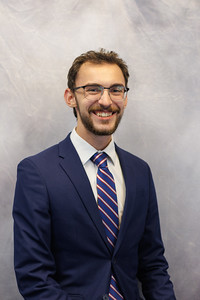Mr. Mike DeSimone: Switchtasking
Author: David Markopoulos | Living Education
These summaries are written to give our audience an idea of the special forum messages our students have access to as part of the Living Education-Charlotte program.
Mr. Michael DeSimone serves as Manager of Broadcast and Digital Media for the Church. In his experience overseeing the telecast and other media productions, success relies heavily on a structured, organized approach to the work at hand. But our success is often inhibited by poor habits, including one that is all too common today: multitasking.
The Myth of Multitasking
Mr. DeSimone explained that while common, the term “multitasking” is actually a misnomer. The habit of multitasking can be more accurately described as “switchtasking.” While it is easy to think of multitasking as the act of working on multiple tasks simultaneously, what is really occurring is a series of micro “switches” between tasks in your brain. While it can be tempting, and even easy, switchtasking has several long-term negative effects on the brain and can actually inhibit productivity. Switching between tasks diverts attention, breaks focus, and makes it difficult to prioritize or make efficient progress.
Lean
Mr. DeSimone shared the principles of Lean—an approach to business that incorporates 5 S’s: Sort; Set in Order; Shine; Standardize; and Sustain. Each of these principles is part of an organized, systematic approach to work tasks. In order to achieve optimal results, sorting has to be the first step. There may be all kinds of distracting, unnecessary clutter in the way that needs to be removed. Next, things should be set in order—arranged in a way that works. Shine refers to keeping everything clean and orderly. Standardizing involves the ideal state resulting from these steps, while sustaining refers to maintaining it.
Building Conscious Habits
These principles of systematic organization can be applied to many aspects of our lives. We come across information daily, and we take on numerous responsibilities at work and at home. Managing our approach to the information we take in is critical to personal and professional success, especially as we grow in our Christian walk. Mr. DeSimone’s message served as a reminder to consciously maintain healthy and intentional habits, and to avoid the myth of multitasking.

David Markopoulos is a Living Education alumnus from the 2023-2025 school years. Originally hailing from Chicago, he currently works for the Living Education program.
